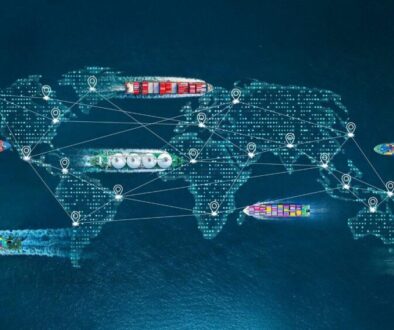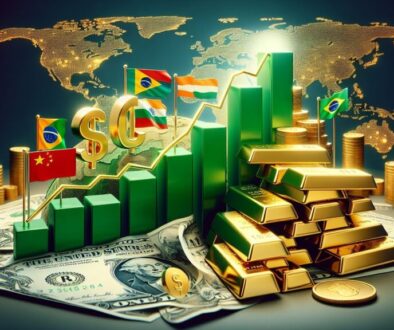SUMMITS AND VALLEYS: HOW WORLD SUMMITS ARE SHAPING THE GLOBAL ECONOMY
BY DR SOHA MAAD
Introduction
This article overviews recent world summits and assesses their impact on the global economy. The article also highlights the challenges that are facing the global economy. These challenges are the valleys where these summits might fall and fail to deliver the desired impact.
Summits overviewed are the Group of seven G7 summit held in Japan, the Arab summit held in the Kingdom of Saudi Arabia, Davos 2023 summit held in Switzerland, China-GCC (Gulf Cooperation Council) summit held in Riyadh, the World Green summit held in United Arab Emirates (UAE), and the Union of Arab banks International Banking summit held in Paris.
G7 Summit
The Group of Seven (G7) concluded its annual summit with the release of the G7 Hiroshima Leaders’ Communiqué on May 21, 2023. The primary focus of the summit was reaffirming support for Ukraine.
The G7 summit was an opportunity for the world’s largest advanced democracies to coordinate on geopolitical, economic, and security issues. The agenda for the summit reflected Japan’s priorities by focusing on traditional security and economic security, Ukraine, technology, and a host of issues related to the Sustainable Development Goals (SDGs). The G7 leaders issued a standalone statement that condemns Russia’s threats and calls out China for the lack of transparency surrounding its nuclear build-up.
G7 leaders stated their commitment to a world without nuclear weapons. In response to China’s coercive economic practices, the G7 leaders statement on economic resilience and economic security called for the creation of a new coordination platform on economic coercion to promote cooperation within and beyond the G7.
The 2024 G7 summit will represent another chance for leaders of the largest advanced democracies to build on the commitments made in Hiroshima and work to align their positions on relevant global issues.
Arab League Summit
At the generous invitation of the Custodian of the Two Holy Mosques, King Salman bin Abdulaziz Al Saud, the Arab leaders held the 32nd regular session of the Council of the League of Arab States at summit level (Jeddah Summit) on May 19, 2023, under the chairmanship of His Royal Highness Prince Mohammed bin Salman bin Abdulaziz Al Saud, Crown Prince and Prime Minister of the Kingdom of Saudi Arabia.
The leaders of the Arab countries stressed the importance of strengthening joint Arab action based on common foundations, values, interests, and one destiny.
The Arab League Summit promoted regional action through Saudi-led diplomacy. It emphasized the necessity of unifying ranks, solidarity and cooperation in maintaining security and stability, protecting the sovereignty of Arab countries and the cohesion of their institutions, preserving their achievements, striving for further progress concerning Arab action, and taking advantage of the human and natural assets that Arab region enjoys addressing the challenges of the new era in a way that serves the goals and aspirations of a promising future for Arab peoples and future generations.
The Arab League summit concluded with a joint declaration urging regional cooperation.
The participation of the president of Syria, Bashar al-Assad, in the Arab League summit formalizes Syria’s restored relationship with the Arab world.
The Saudi push to end Syria’s isolation and mobilize efforts to address the conflicts in Sudan and Ukraine illustrate how the Arab League summit was a showcase for the Kingdom’s agenda to portray itself as a major driver of global peace-building.
The Arab League summit has facilitated Saudi Arabia’s position as an emerging pro-diplomacy force.
The Kingdom of Saudi Arabia presidency of the 32nd Arab League summit, stressed a number of initiatives that are bound to contribute to advancing the joint Arab work in the cultural, economic, social and environmental fields, including:
- The initiative of teaching the Arabic language to non-native speakers.
- The Culture and Green Future Initiative.
- The initiative of sustaining the supply chains of essential food commodities for the Arab countries.
- The initiative of research and excellence in the water desalination industry and its solutions.
- The initiative to establish a think tank for research and studies in sustainability and economic development.
Davos Summit 2023
The World Economic Forum Annual Meeting in 2023 took place in January 16 to January 20 in Davos, Switzerland. It brought together top decision-makers from government, business, and civil society to address major global issues and priorities for the year ahead. The Davos 2023 summit addressed the main theme of resilience and globalization in a fragmented world. Sustainability was high on the agenda of Davos 2023 despite geopolitical crises. Davos 2023 highlighted that investment and innovation in green technology, boosted by artificial intelligence, will be the greatest investment opportunity since the Industrial Revolution. Governments need to develop a strategy and set goals to enhance investment confidence in green technology. Reform of multilateral financial institutions would be key to driving the flow of public and private investment in emerging markets.
The summit concluded with the importance of developing frontier technologies for private-sector innovation and resilience in the next five years.
China GCC Summit
According to sources from the Ministry of Foreign Affairs of the People’s Republic of China, the first China-Gulf Cooperation Council (GCC) Summit was held at the King Abdulaziz International Conference Center in Riyadh on 9 December 2022.
President Xi Jinping attended the Summit with Crown Prince and Prime Minister Mohammed bin Salman Al Saud of Saudi Arabia, Emir Sheikh Tamim bin Hamad Al Thani of Qatar, King Hamad bin Isa Al Khalifah of Bahrain, Crown Prince Sheikh Meshaal Jaber Al Ahmad Al Sabah of Kuwait, Deputy Prime Minister Sayyid Fahd bin Mahmoud Al Said of Oman, the Ruler of Fujairah Sheikh Hamad bin Mohammad Al Sharqi of the United Arab Emirates (UAE), and GCC Secretary General Nayef Falah Al Hajraf.
The summit affirmed the solidarity between the two sides (China and GCC) in times of adversity. China will continue to support the GCC in seeking strength through unity, realizing diversified economic development, and playing a bigger role in regional and international affairs.
The first China-GCC Summit is a milestone event in the history of GCC and China relations. President Xi underscored that China highly commends the GCC countries’ efforts to seek strength through unity and make the GCC the most dynamic regional organization in the Middle East and the Gulf. In the next three to five years, China will work with GCC countries in the following priority areas:
- China will continue to import more crude oil and liquefied natural gas (LNG) from GCC countries.
- China will strengthen cooperation with GCC countries in oil and gas development and clean and low-carbon technologies.
- China will conduct Renminbi (RMB) settlement in oil and gas trade. The Renminbi (RMB) is the official name of China’s currency.
- China will cooperate with 300 universities, middle and primary schools in GCC countries on Chinese language education, work with GCC countries to set up 300 Chinese language smart classrooms.
China and GCC countries shared the glorious mission of developing and revitalizing their nations. At the Summit, a joint statement by the People’s Republic of China and the Cooperation Council for the Arab States of the Gulf was issued, a 2023-2027 action plan for strategic dialogue between the People’s Republic of China and the Cooperation Council for the Arab States of the Gulf was adopted, and plans were made for China’s cooperation with GCC countries in various fields.
Transorm Africa Summit
The Transform Africa Summit is Africa’s leading annual forum bringing together global and regional leaders from government, business and international organizations to collaborate on new ways of shaping, accelerating and sustaining Africa’s on-going digital revolution. In 2023, the Transform Africa Summit was held 26-28 April in Zimbabwe. Building trusted connectivity between Africa and Europe was a main theme raised at the summit. The European Union launched the Global Gateway, a new strategy to boost smart, clean and secure links in digital, energy and transport sectors and to strengthen health, education and research systems in Africa. The Global Gateway Strategy is an opportunity for Africa and Europe to strengthen their digital partnerships.
Digital inclusion was an important theme addressed in Transform Africa Summit. The summit offered to stakeholders the opportunity to understand the regional disparities and identify priority areas which align with their strategic visions and to adopt a multi-dimensional approach to deal with different digital developmental needs.
World Green Economy Summit
Under the patronage of HH Sheikh Mohammed bin Rashid Al Maktoum, Vice President and Prime Minister of UAE and Ruler of Dubai, the World Green Economy Summit was organised by the Dubai Electricity and Water Authority, Dubai Supreme Council of Energy and World Green Economy Organization in cooperation with WETEX. The World Green Economy Summit, aims to propel action to deliver a sustainable future. It was held on the 28th and 29th of September 2022 at Dubai World Trade Centre (DWTC).
Convened in the lead-up to the Conference of Parties COP27 in Egypt and COP28, the World Green Economy Summit is a platform to build consensus around the potential of technologies, policies and youth as engines of a green economy transformation. It also supports the United Arab Emirates (UAE) efforts to achieve the United Nations Sustainable Development Goals 2030 (SDGs), the Dubai Clean Energy Strategy 2050 and the Dubai Net Zero Carbon Emissions Strategy 2050 to provide 100% of Dubai’s total power capacity from clean energy sources by 2050. The summit focused on developing investment partnerships in green projects and financing. It promoted investment and employment opportunities provided by the green economy.
The summit addressed the issue of regulation and its role in driving a dramatic shift in how businesses think about sustainability. New rules will increasingly require companies to disclose their impact on the environment and the financial risks they face from climate change. Growing concern about the implications of biodiversity loss and the economic value of ecosystem services means that governments and businesses alike will increasingly return to thinking about the environment more broadly, rather than just focusing on carbon emissions.
IABS
The Union of Arab Banks organized its yearly International Arab Banking Summit (IABS), the Euro-Med Economic and Banking Summit 2023, on 24 to 25 May 2023 in Paris, France. Along with this conference, the Union of Arab Banks and International Chamber of Commerce joint conference (UAB-ICC) was held on the 26th of May, 2023 at the International Chamber of Commerce (ICC) premises in Paris.
IABS addressed the global challenges from rising geopolitical tensions, market segmentation, high inflation (in particular energy and food prices), intensifying climate risks, food insecurity, anticipated recession, and mounting public debts.
IABS called for boosting cooperation between Euro-Mediterranean countries to pave the way for more sustainable collaboration and to harmonize policies for achieving energy and food security in the region, facilitating trade, investment and capital, and partnering in climate-related projects.
In parallel, the development and increased complexity of financial and banking operations and relationships, and the mounting reliance on digitalization and the fast digital transformation, all are giving more importance to Arbitration as an alternative means to solve financial and banking disputes in the era of the digital economy. In light of this, the Union of Arab Banks was pioneer in organizing in collaboration with the International Chamber of Commerce the forum on the use of arbitration and Alternative dispute resolution (ADR) to provide efficient and innovative access to Justice in the international banking and trade sectors. The forum discussed the relevance of arbitration in resolving disputes arising in the financial sector in the era of digitalization, mainly regarding smart contracts, automated commerce, artificial intelligence, cybersecurity, and Blockchain technology.
Assessement Of Impact
World summits can be classified as geopolitical, economic and financial, strategic, and goal specific (focusing on digital transformation, energy, climate, etc).
World summits aim to promote growth, restore balance, bridge ties, and solve challenges facing the world.
We assess the impact of summits based on their ability to address world challenges (such as poverty, wars, inflation, energy), their potential to support growth (innovation, investment, technology), and their role as a key driver of change marking a turning point in history.
Based on the brief overview of latest world summits we can infer that:
- The Group of Seven G7 summit struggled to support Ukraine but failed to deliver the desired impact in addressing challenges and restoring balance in the world.
- Davos Summit attempted to bridge ties and support digital world connectivity but did not resolve the digital divide gap.
- The Arab league summit was a turning point in history by re-establishing ties between Arab countries, but did not draw a clear roadmap to stop the wars and re-balance world power fairly.
- China-GCC summit will have a big potential on global supply chain growth. However, it just meets country specific needs and strengthen the power of big nations, thus increasing the imbalance of power in the world.
- The World Green Summit addressed important challenges facing the world for years ahead and should be supported by action at a global level.
- The Transform Africa Summit supported digital transformation in Africa and is a good lesson to learn from for other nations striving to emerge from under-development.
- The Union of Arab Banks International Banking Summit was characterised by a high level of novelty raising for the first time the importance of the topic of digital mediation and arbitration at Arab pan level. Digital mediation and arbitration may be key in the future in resolving conflicts in the Arab world.
Assessment of Impact of World Summits
| Addressing World Challenges | Growth and Innovation | Turning Point in History | Novelty | Overall Impact |
G7 | LOW | ||||
DAVOS SUMMIT | AVERAGE | ||||
ARAB SUMMIT | FUTURE POTENTIAL | ||||
CHINA-GCC | PROMISING | ||||
TRANSFORM AFRICA | HIGH | ||||
WORLD GREEN SUMMIT | HIGH | ||||
IABS | GOOD |
Conclusion
World summits plays a vital role in addressing global challenges, supporting growth and driving change. Latest world summits were a mean to bridge ties between countries, enhance digital connectivity, channel investment to vital joint projects between countries, and draw a path to achieve sustainability goals. However, these summits were geopolitical, driven by national and group interest, strengthening the power of the giants thus leading nations to fall in the valleys of imbalance of power, supporting strong nations at the detriment of the poor nations, and failing to meet a global need, stopping wars, taming inflation and levying poverty.



